Manish Parashar recently joined The University of Utah as Director and Chair in Computational Science and Engineering at the Scientific Computing and Imaging (SCI) Institute and Professor at the School of Computing.
Manish is currently serving on an IPA to the US National Science Foundation (NSF) since February 2018 where he is the Office Director of the Office of Advanced Cyberinfrastructure (OAC). At NSF he oversees investments in the exploration development, acquisition and provisioning of state-of-the-art national cyberinfrastructure resources, tools, services and expertise essential to the advancement and transformation of all of science and engineering. He is also leading the development of NSF’s strategic vision for a National Cyberinfrastructure Ecosystem for 21st Century Science and Engineering that responds to rapidly changing application and technology landscapes, as well as blueprints for NSF’s key cyberinfrastructure investments over the next decade.
Manish is co-chair, in coordination with the White House Office of Science and Technology Policy (OSTP), of the National Artificial Intelligence Research Resource Task Force, the National Science and Technology Council (NSTC) Subcommittee on the Future Advanced Computing Ecosystem (FACE) and is part of the leadership of the COVID 19 High-Performance Computing Consortium, a unique public-private partnership that brings together government, industry, and academic leaders to provide computing resources in support of COVID-19 research. As Co-Chair of FACE, Manish led the development of the Blueprint for a National Strategic Computing Reserve (NSCR).
Manish served as Assistant Director for Strategic Computing at OSTP until December 2020, where he led strategic planning for the Nation’s Future Advanced Computing Ecosystem, and the development of the report “Pioneering the Future Advanced Computing Ecosystem: A Strategic Plan.” He also served as the NSF representative for the US National Strategic Computing activities led by the OSTP, and served as co-chair of the Fast Track Action Committee (FTAC) that developed the report titled National Strategic Computing Update: Pioneering the Future of Computing.
Until December 2020, Manish was Distinguished Professor of Computer Science at Rutgers, The State University of New Jersey University. He was also the founding Director of the Rutgers Discovery Informatics Institute (RDI2) and The Applied Software Systems Laboratory (TASSL), Full Member (Clinical Investigations and Precision Therapeutics Program) of the Rutgers Cancer Institute of New Jersey, and was Associate Director of the Rutgers Center for Information Assurance (RUCIA). Before joining NSF, he led the design, development, deployment, and Operations and Maintenance as Lead PI for Cyberinfrastructure for the NSF Ocean Observatories Initiative. He also co-led the Discovery Science Spoke of the NSF Northeast Big Data Hub. He was Visiting Professor in the Faculty of Business, Computing & Law at University of Derby, UK from 2012 to 2021.
At Rutgers, Manish Parashar co-led (with Prof. H. Berman) the strategic planning efforts in Research Computing and served as the Interim Associate Vice President of Research Computing between 2015 – 2016 to oversee the establishment of the Rutgers Office of Advanced Research Computing (OARC). He acquired funding for and deployed Cloud and Autonomic Computing Center (CAC) NSF IUCRC at Rutgers (CAC@Rutgers) between 2008 and 2013.
Between 2009 — 2011, Manish served as Program Director in the Office of Cyberinfrastructure (OCI) (now called Office of Advanced Cyberinfrastructure — OAC) at the National Science Foundation (NSF), where he managed an approximately $150 Million research portfolio in the areas of software sustainability, computational and data-enabled science and engineering and cloud computing. At NSF, he established and led the crosscutting Software Infrastructure for Sustained Innovation (SI2) program, the CI TraCS Computational Science Fellowship programs, co-led the creation of the Computing in the Cloud (CiC) program, and worked on the NSF-wide Cyberinfrastructure Framework for 21st Century Science and Engineering (CIF21) initiative.
Manish’s academic career has focused on translational computer science with a specific emphasis on computational and data-enabled science and engineering, and has addressed key conceptual, technological and educational challenges. His research is in the broad area of high performance parallel and distributed computing and investigates conceptual models, programming abstractions, and implementation architectures that can enable new insights through very large-scale computations and big data in a range of domains critical to advancing our understanding of important natural, engineered and social systems. His contributions include innovations in data structures and algorithms, programming abstractions and systems, and systems for runtime management and optimization. Furthermore, the development and deployment of systems that encapsulate these research innovations and can be used by scientists and engineers in academia and industry, has been an integral part of his research. His research has had direct and significant impact on a range of domains (for example, subsurface/seismic modeling, plasma physics and fusion, hydrology, compressible turbulence and computational fluid dynamics, bio-/medical informatics, oceanography, numerical relativity/astrophysics, plasma physics, and business intelligence) as evidenced by my publications. He has collaborations with leading national and international research groups at universities, national laboratories, and industry.
Manish has held a visiting position at the eScience Institute at Edinburgh, UK (2009-2010), and a joint research appointment with the Center for Subsurface Modeling, The University of Texas at Austin (1996-2006). He has also been a visiting fellow at the Department of Computer Science and DOE ASCI/ASAP Center, California Institute of Technology (2000-2001), at the DOE ASCI/ASAP FLASH Center, University of Chicago (1998), and at the Max-Plank Institute in Potsdam, Germany (1994-1998).
Manish has received several awards for his research, publications and service. He was elected to IEEE Computer Society’s Golden Core in 2016. He is a Fellow of AAAS, Fellow of ACM and Fellow of IEEE / IEEE Computer Society. He received a 2013 R & D 100 Award (with ORNL and GT), Peter D. Cherasia Faculty Scholar Award from the Rutgers School of Engineering (2014 – 2017), IBM Faculty Awards in 2008 and 2010, the Tewkesbury Fellowship from University of Melbourne, Australia (2006), the Rutgers Board of Trustees Award for Excellence in Research (The Award) (2004-2005), the NSF CAREER Award (1999), TICAM (now ICES) (University of Texas at Austin) Distinguished Fellowship (1999-2001), and the Enrico Fermi Scholarship, Argonne National Laboratory (1996). He also received Outstanding Service Awards from IEEE Computer Society Technical Committee on Parallel Processing (TCPP) in 2009, 2010, 2011, 2017, and 2019, and Outstanding Leadership Awards form the IEEE Computer Society Technical Committee on Scalable Computing (TCSC) in 2008, 2009, 2010, 2011, 2012, and 2013.
Manish is the founding chair of the IEEE Technical Consortium on High-Performance Computing and Editor-in-Chief of the IEEE Transactions on Parallel and Distributed Systems. He serves on the editorial boards and organizing committees of a large number of journals and international conferences and workshops. He has also served as a panelist for NSF, DoE and other national and international funding agencies, and regularly reviews technical articles for journals and conferences. At Rutgers, he serves in leadership roles on various, University, School and Department level committees and is actively involved in curriculum development, especially in applied parallel and distributed computing and computational and data-intensive computing.
Manish has co-authored a large number technical publications including paper in international journals and conferences, invited papers and presentations and book chapters. He has also co-authored/edited books, conference proceedings and journal special issues and has presented large number of keynotes and distinguished seminars. He has developed and deployed several software systems that are widely used, including DataSpaces/DIMES/DART, CometCloud. Manish has graduated 24 Ph.D. and 50 MS students and has mentored over 15 postdoctoral scholars.
Manish received a BE degree in Electronics and Telecommunications from Bombay University, India, and MS and Ph.D. degrees in Computer Engineering from Syracuse University.

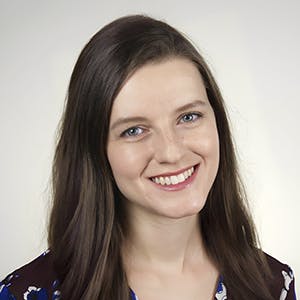 Amy Kluber Editor-in-Chief GovCIO Media & Research
Amy Kluber Editor-in-Chief GovCIO Media & Research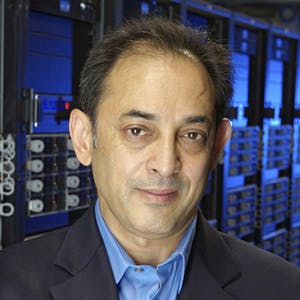 Manish Parashar Director, Office of Advanced Cyberinfrastructure National Science Foundation
Manish Parashar Director, Office of Advanced Cyberinfrastructure National Science Foundation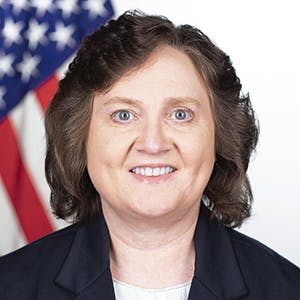 Lynne Parker Assistant Director for AI and Director of the National AI Initiative Office, Office of Science and Technology Policy The White House
Lynne Parker Assistant Director for AI and Director of the National AI Initiative Office, Office of Science and Technology Policy The White House Moderator: Amy Kluber Editor-in-Chief GovCIO Media & Research
Moderator: Amy Kluber Editor-in-Chief GovCIO Media & Research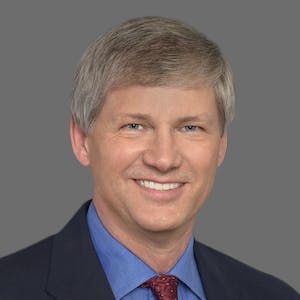 David Keever Vice President, Division Chief Scientist Leidos Innovations Center
David Keever Vice President, Division Chief Scientist Leidos Innovations Center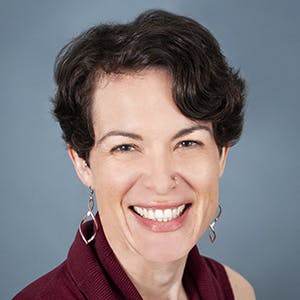 Amanda Purnell Director of Data and Analytics Innovation VA
Amanda Purnell Director of Data and Analytics Innovation VA Moderator: Sarah Sybert Staff Writer/Researcher GovCIO Media & Research
Moderator: Sarah Sybert Staff Writer/Researcher GovCIO Media & Research Erika Bauer Lead Product Designer, Chief Digital and Artificial Intelligence Office for Digital Services DOD
Erika Bauer Lead Product Designer, Chief Digital and Artificial Intelligence Office for Digital Services DOD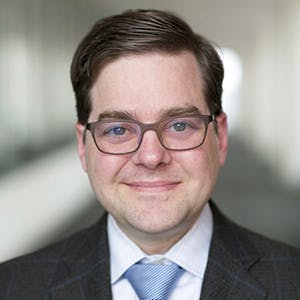 Scott Beliveau Chief, Enterprise Advanced Analytics USPTO
Scott Beliveau Chief, Enterprise Advanced Analytics USPTO Moderator: Katherine MacPhail Staff Writer/Researcher GovCIO Media & Research
Moderator: Katherine MacPhail Staff Writer/Researcher GovCIO Media & Research Amy Kluber Editor-in-Chief GovCIO Media & Research
Amy Kluber Editor-in-Chief GovCIO Media & Research Erika Bauer Lead Product Designer, Chief Digital and Artificial Intelligence Office for Digital Services, DOD
Erika Bauer Lead Product Designer, Chief Digital and Artificial Intelligence Office for Digital Services, DOD Scott Beliveau Chief, Enterprise Advanced Analytics, USPTO
Scott Beliveau Chief, Enterprise Advanced Analytics, USPTO Manish Parashar Director, Office of Advanced Cyberinfrastructure, National Science Foundation
Manish Parashar Director, Office of Advanced Cyberinfrastructure, National Science Foundation Amanda Purnell Director of Data and Analytics Innovation, VA
Amanda Purnell Director of Data and Analytics Innovation, VA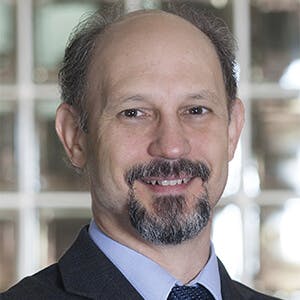 Fred Streitz Senior Advisor, Center for Forecasting and Outbreak Analysis, CDC
Fred Streitz Senior Advisor, Center for Forecasting and Outbreak Analysis, CDC David Keever Vice President, Division Chief Scientist, Leidos Innovations Center
David Keever Vice President, Division Chief Scientist, Leidos Innovations Center













